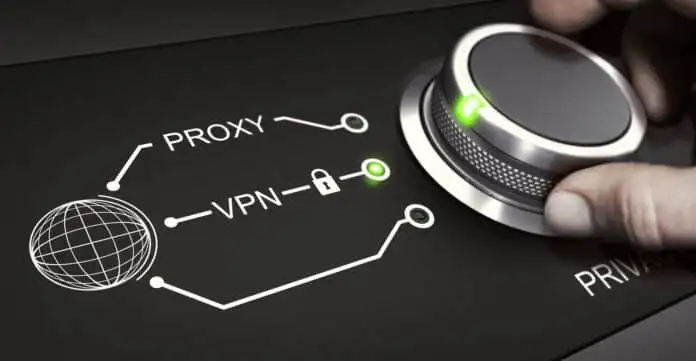The popularity of remote working has grown by leaps and bounds in the past few years. Once considered a perk granted by a few companies, remote working is now considered the norm for users globally. Despite the gains in productivity and convenience that remote work offers, it can also introduce certain cybersecurity risks that must be identified and mitigated for a safe working environment. In this article, we go over how VPNs can play an important way in enabling and securing remote work.
The Era of Remote Work and its risks
Remote work allows users to access their work environment from their homes. By its very nature, it introduces a broader attack surface for cybercriminals to exploit. Organizations must introduce means for employees to connect from any location via public and home networks. These networks are typically not as secure as a corporate network, which can expose employees and their corporate assets to cyberattacks such as phishing, malware, identity theft, etc. An attacker could potentially compromise a user via the public internet and use this corporate laptop as a jumping point into a corporate network.
How VPNs help to mitigate these risks
Virtual Private Networks (VPNs) create a secure, encrypted tunnel between a user’s device and the corporate network. They are a critical component of a secure cybersecurity framework for enabling remote work. This secure tunnel ensures that data is encrypted and cannot be accessed by a malicious party. A VPN can ensure that regardless of what type of public network is being used, corporate data such as passwords, intellectual property, financial information, etc., and email communication is secure between a user and a company. Users can safely access their file shares and corporate applications as if sitting within the office premises, despite being present at any location.
In addition to these apparent benefits, VPN for remote workers also bring added advantages, such as masking your IP address and location to maintain privacy and make it difficult for attackers to find your location. The encrypted tunnel VPNs also prevent ISPs from getting visibility into users’ activities and actions and targeting them based on that.
How to implement VPN as a remote work solution
Companies that want to implement a VPN for remote workers must consider this a project, not a product you implement. Users must be educated on the Dos and Don’ts and technical details. A few of the most important aspects to consider are:
- Create a project team with the relevant stakeholders if you are implementing a VPN solution for remote working, as this will require both time and effort. The budgeting and effort aspect must be monitored and reported on
- Choose a proper VPN for remote workers solution that can accommodate the user load that is expected to happen. Not all VPN providers and solutions are equal, so formalize the criteria that will be used, such as performance, security, compatibility, customer support, etc..
- Launch a training program for employees so they know how to use VPNs securely and the technical details around connecting, troubleshooting, patching updates, etc. There is a learning curve associated with using VPNs that should be considered. Employees must also acknowledge a VPN policy that dictates how they are expected to use this facility and any restrictions on the same. This will hold employees accountable in case of any violation. Make sure this is done regularly and is not a one-off activity.
- Implement controls for security and performance monitoring over the VPN. Like any solution, VPNs must be monitored significantly from a security and performance perspective since any issue will directly impact remote workers and their productivity. Define performance metrics such as downtime, connection speed, etc., for monitoring and investing in controls like DDOS protection so that the VPN connection point does not become a single point of failure.
These are just a few measures and controls companies can implement so that all employees safely and securely use remote working via VPN.
Conclusion
Remote working is a reality that will only grow in popularity over time thus, ensuring a safe and secure implementation of a VPN solution is essential for long-term success. Cybersecurity threats targeting remote working will only grow in popularity thus, selecting an appropriate VPN solution, educating employees, and monitoring is the key to long term remote work success.
FREQUENTLY ASKED QUESTIONS
What is a VPN, and how does it work?

A VPN (Virtual Private Network) is a technology that creates a secure, encrypted connection between a user’s device and a remote server. This encrypted tunnel ensures that the data transmitted between the device and the server cannot be intercepted or read by unauthorized parties, providing a secure and private online experience.
Why are VPNs necessary for remote workers?

VPNs are crucial for remote workers because they protect employees and company data from various cybersecurity threats. By using a VPN, remote employees can secure their internet connection, ensuring that sensitive information such as login credentials, financial data, and proprietary information remains safe from hackers and cybercriminals.
What are the benefits of using a VPN for remote work?
Some key benefits of using a VPN for remote work include data encryption, IP address masking, secure access to company resources, bypassing geographical restrictions, and enhanced privacy protection.
How can companies implement VPNs in their remote work environment?
Companies can implement VPNs in their remote work environment by selecting the right VPN provider, establishing a VPN usage policy, providing employee training, monitoring VPN usage and performance, and regularly updating and maintaining VPN software.
Is a VPN necessary for every remote worker?
While the necessity of a VPN can vary depending on the nature of the work and the specific tasks performed by the employee, it is generally recommended for remote workers who access company resources and handle sensitive data. Using a VPN significantly enhances the security and privacy of the remote work environment, reducing the risk of data breaches and other cyber attacks.
Can a VPN slow down my internet connection?
A VPN may cause a slight decrease in internet speed due to the encryption and decryption process and additional routing through the VPN server. However, this speed reduction is generally minimal and does not significantly impact the overall user experience. Sometimes, connecting to a VPN server geographically closer to the user can minimize any potential speed reduction.




